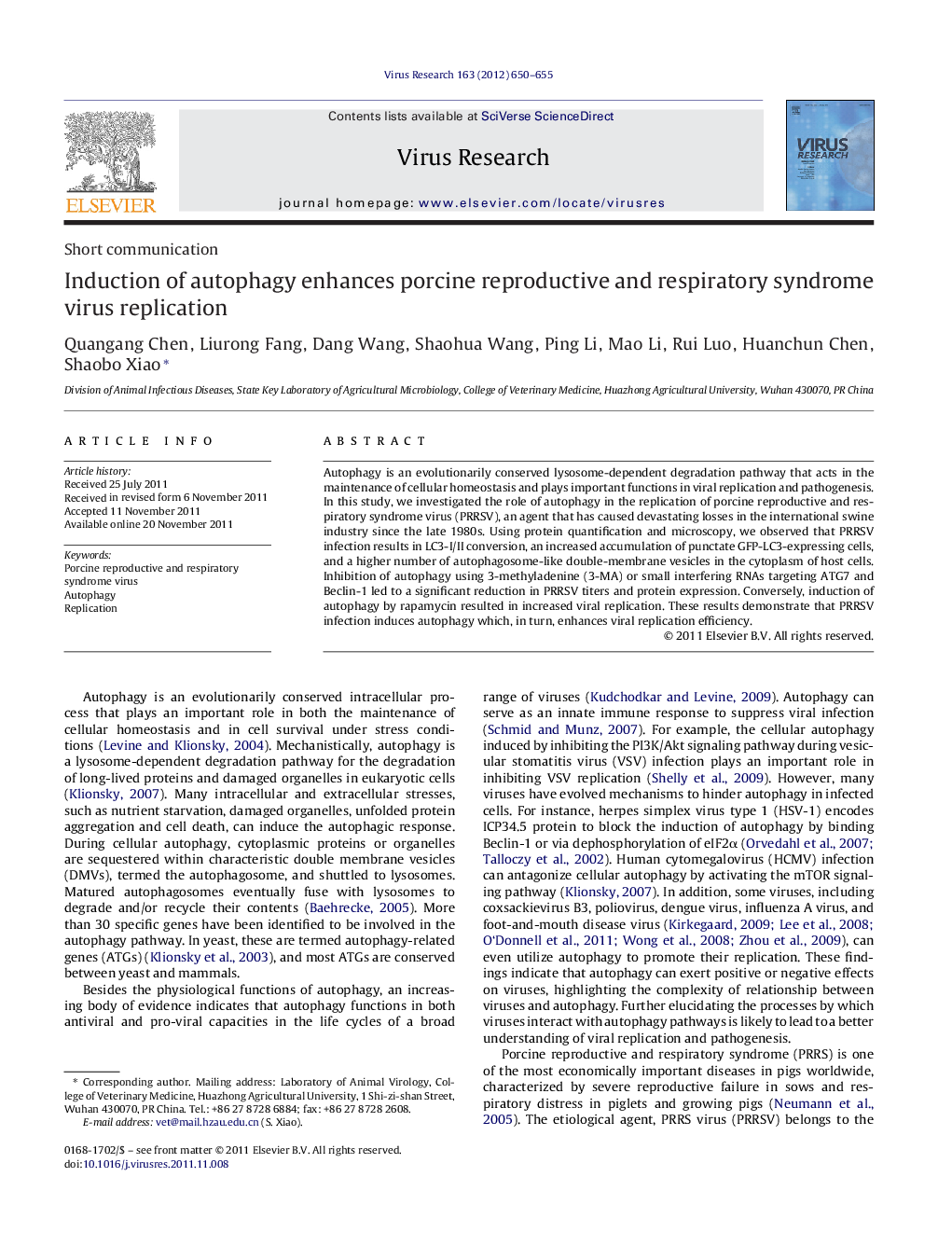| Article ID | Journal | Published Year | Pages | File Type |
|---|---|---|---|---|
| 3428913 | Virus Research | 2012 | 6 Pages |
Autophagy is an evolutionarily conserved lysosome-dependent degradation pathway that acts in the maintenance of cellular homeostasis and plays important functions in viral replication and pathogenesis. In this study, we investigated the role of autophagy in the replication of porcine reproductive and respiratory syndrome virus (PRRSV), an agent that has caused devastating losses in the international swine industry since the late 1980s. Using protein quantification and microscopy, we observed that PRRSV infection results in LC3-I/II conversion, an increased accumulation of punctate GFP-LC3-expressing cells, and a higher number of autophagosome-like double-membrane vesicles in the cytoplasm of host cells. Inhibition of autophagy using 3-methyladenine (3-MA) or small interfering RNAs targeting ATG7 and Beclin-1 led to a significant reduction in PRRSV titers and protein expression. Conversely, induction of autophagy by rapamycin resulted in increased viral replication. These results demonstrate that PRRSV infection induces autophagy which, in turn, enhances viral replication efficiency.
